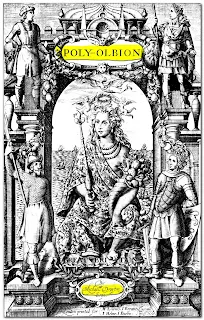Prof. Bate fulfills all criteria and tricks (click Video1) for an Orthodox Academic Stratfordian Grandmaster or horrendous ham (actor) to discredit the actual serious Shakespeare Authorship Problem.
He deals with authorship Key Questions (click Video2 50 min) as if they were non-existent! A paid stirrup holder of the SBT?
_______________________
Jennifer Reid (introducing Prof. Jonathan Bate at the beginning of the Video by saying...)
Quote: "I am here today with Jonathan to talk about the authorship question. So we'd like to adress the question about the authorship in Person and
put it to bed once and for all "
Quote: "I am here today with Jonathan to talk about the authorship question. So we'd like to adress the question about the authorship in Person and
put it to bed once and for all "
Jonathan Bate concluded the Q&A game by saying:
Quote: "so in a way the authorship controversy emerged out of a kind of disappointment that the hard evidence of the documents didn't quite have the colour and the glamour to go with the idea that Shakespeare as the quintessential Genius
I think by the later 20th century the phenomenon, the controversy was dying away..-
But then of course, with the advent of the Internet, it came back in a big way, because marvellous thing that the Internet is, the problem is, that there isn't a sort of a system of independent verification where you can discover....
....which websites are actually based on evidence and which are based on conspiracy theory.
So I am afraid it's not going to go away. But from our point of view, from the point we feel on the basis of the evidence we have laid out, other evidence thats available in a number of books [that we'll be listing on the Course site] ...
... the matter is settled.-
Quote: "so in a way the authorship controversy emerged out of a kind of disappointment that the hard evidence of the documents didn't quite have the colour and the glamour to go with the idea that Shakespeare as the quintessential Genius
I think by the later 20th century the phenomenon, the controversy was dying away..-
But then of course, with the advent of the Internet, it came back in a big way, because marvellous thing that the Internet is, the problem is, that there isn't a sort of a system of independent verification where you can discover....
....which websites are actually based on evidence and which are based on conspiracy theory.
So I am afraid it's not going to go away. But from our point of view, from the point we feel on the basis of the evidence we have laid out, other evidence thats available in a number of books [that we'll be listing on the Course site] ...
... the matter is settled.-
_____________________________________________________








